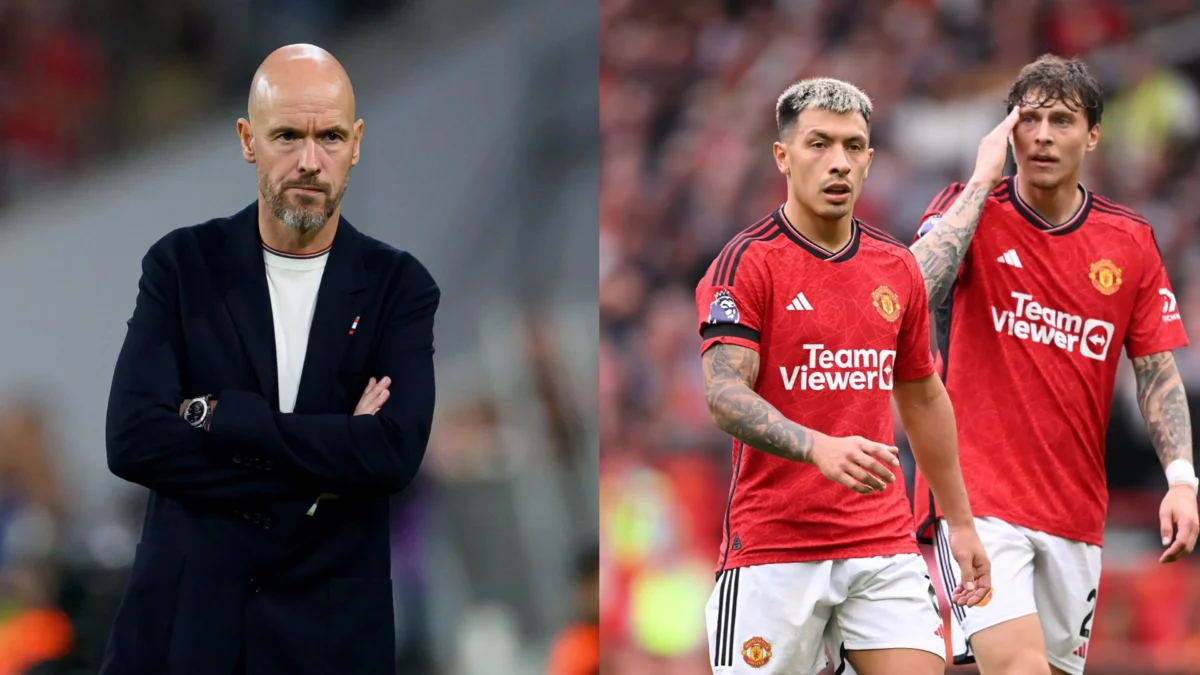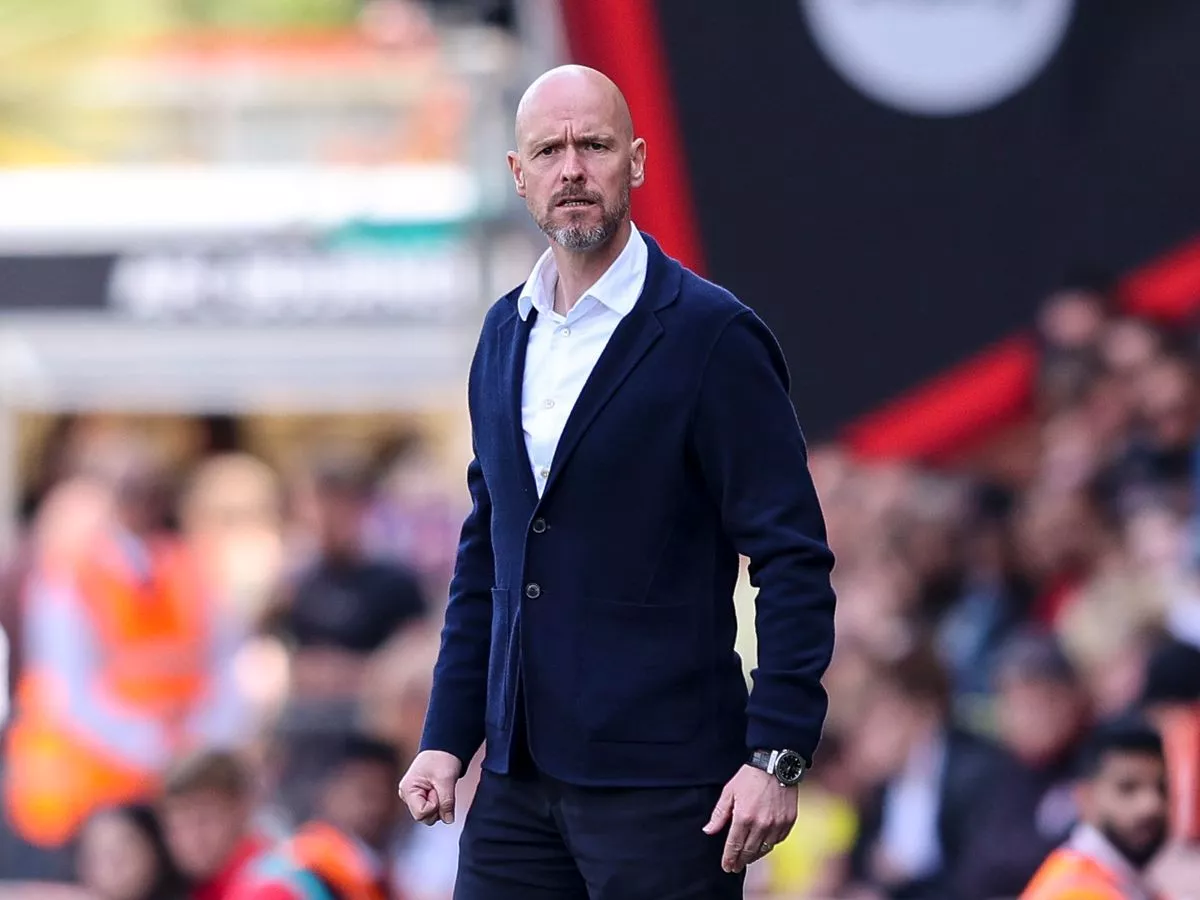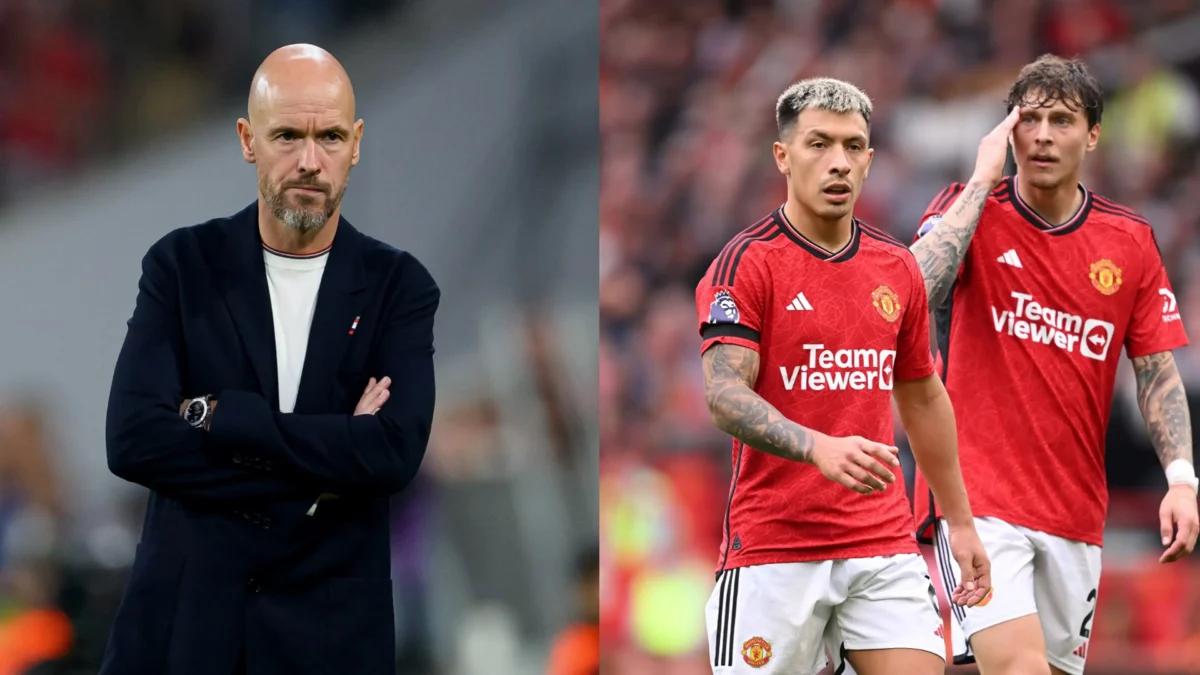There appears to be a lack of trust between Erik ten Hag and his Manchester United players, which is becoming increasingly evident as a pivotal week looms for the team. This situation highlights the unique challenges associated with managing a club of this stature, where certain players and even managers can struggle to cope with the immense pressure. It raises questions about whether Erik ten Hag has successfully established a strong connection with his team and whether he’s fully adapted to the demands of his role at the club.

Turning point and pressure: The crucial role of late goals in football management
The significant pressure on Erik ten Hag was quite evident before the international break, and it’s worth noting that without the dramatic late goals by Scott McTominay, his position could have been in serious jeopardy. In football history, there are these remarkable turning points that can define a manager’s career. For instance, during my childhood, Adrian Heath’s crucial goal in the League Cup against Oxford played a pivotal role in saving Howard Kendall’s job at Everton.
Legendary narratives and managerial pressure: The importance of consistency
Mark Robins also comes to mind, as his goal in the FA Cup against Forest was instrumental in saving Alex Ferguson’s job at Manchester United. Both Ferguson and Robins went on to achieve greatness in their respective careers, which might be the sort of legendary narrative that Erik ten Hag is aiming for. McTominay’s late-game heroics did indeed provide the necessary dramatic flair. Nevertheless, it’s important to recognize that a single fortunate win, courtesy of two late goals from a player whom the manager had seemingly excluded from the team, doesn’t alleviate the ongoing pressure. In football, it’s consistent results that truly matter. Erik ten Hag finds himself facing a pivotal week where maintaining such consistency will be crucial.
Unrelenting pressure: Manchester United’s high expectations and Ten Hag’s no-win situation
Manchester United’s return to action after the international break couldn’t have been more challenging. The pressure is back on immediately as they face newly promoted Sheffield United under the Saturday night floodlights, with an unforgiving crowd eager for a win. It’s a situation where Erik ten Hag is in a no-win position. The expectation at Manchester United is to triumph in virtually every match. Their storied history has set incredibly high standards, and this demand remains, even though they haven’t claimed a trophy in several years.

Managing Manchester United: A different level of scrutiny and expectation
I can’t help but wonder if this difference in the level of scrutiny is part of the issue. While Erik ten Hag has successfully managed Ajax, a club with its own rich history, it’s important to acknowledge that it’s not the same as being at Old Trafford. At Manchester United, the expectation to win is relentless, and it comes with an unparalleled level of detailed scrutiny. This scrutiny extends beyond traditional media like newspapers and TV. The advent of social media has given voice to millions of fans, amplifying the intensity of the spotlight on the club. It also grants players more influence in their relationships with their managers compared to earlier times.
Erik Ten Hag’s public approach: A departure from the Ferguson era
Erik ten Hag’s handling of Jadon Sancho, for instance, might have been acceptable during the Ferguson era, as Sir Alex Ferguson did move on a few players during his time. However, there’s a significant contrast in how these situations are managed. Ferguson rarely made public statements about such matters, and neither did the players. In today’s environment, it’s all unfolding in the public eye, and I believe this is a mistake. The Manchester United squad is observing this, and they might be contemplating their manager’s actions, thinking, “You claim it’s all about unity, but at the first opportunity, it seems like you’re willing to sacrifice one of us.



